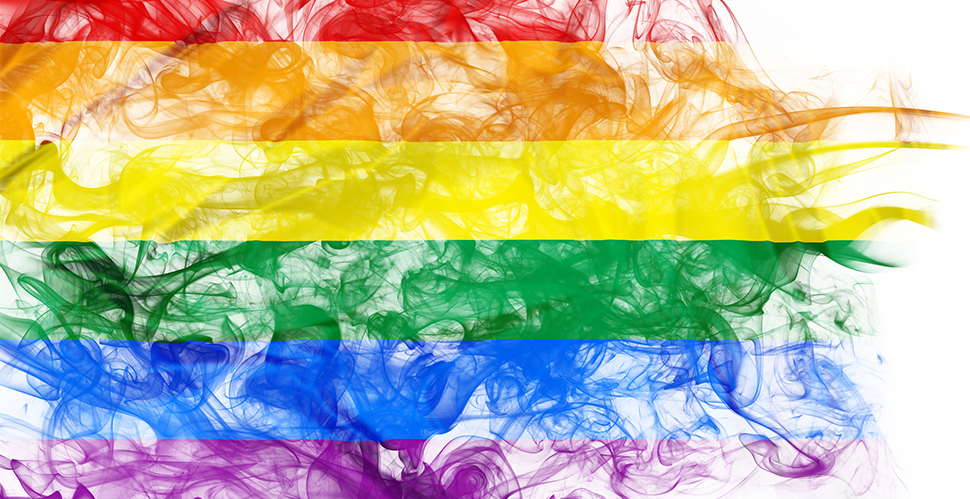June is Pride Month, when people who identify as lesbian, gay, bisexual, and transgender (LBGT) come together and celebrate the freedom to be themselves.
However, current LGBT smoking rates indicate that freedom from tobacco remains a very real struggle.
Here are some key facts about LGBT smoking rates:
- The LGBT population is among the hardest hit by tobacco in the U.S. Overall, more lesbian/gay/bisexual individuals use tobacco (25% use tobacco) than heterosexual adults (19% use tobacco).
LGBT individuals are also significantly more likely to smoke menthol cigarettes.
One study found, among surveyed tobacco users, 36% of LGBT smokers use menthols compared to 29% of heterosexual/straight smokers.
Here’s why this matters: Given how menthol interacts with nicotine, people who smoke menthol cigarettes are more likely to continue smoking. And this puts menthol smokers at higher risk of getting tobacco-related diseases.
Learn more about the troubling impact of menthol cigarettes.
- LGBT individuals are more likely to get hooked as teens and young adults. LGBT youth are twice as likely to smoke a cigarette before age 13 compared to their straight/cis-gen counterparts. Over 40% of LGBT young adults are occasional cigarette smokers.
Nicotine is harmful to developing brains and its use during adolescence can disrupt the formation of brain circuits that control attention, learning, and susceptibility to addiction.
Research shows that smoking at an early age is correlated with daily use and lifetime nicotine dependence. Plus, nicotine can worsen anxiety symptoms and amplify feelings of depression.
- The LGBT community is heavily targeted by the tobacco industry. Predatory marketing practices have been in place toward people who identify as LGBT for decades. In fact, in 1995, tobacco company R.J Reynolds created a marketing strategy called Project SCUM (sub-culture urban marketing) that targeted gay men and homeless individuals.
Tobacco companies have made major investments in advertising in gay press publications and have used corporate philanthropy as evidence that it “supports” the LGBT community. More recently, e-cigarette makers have employed the same tactics, including sponsoring LGBT events.
See more in “Tobacco use in LGBT communities” on the Truth Initiative site.
- LGBT individuals have unique health risk factors. LGBT individuals often have risk factors for smoking that include daily stress related to prejudice, societal stigma, internalized homophobia, and negative reactions to coming out.
Additionally, gay men can have high rates of HPV infection which, when coupled with tobacco use, increases their risk for anal and other cancers.
And among women, secondhand smoke exposure is more common among non-smoking lesbian women than among non-smoking straight women.
- LGBT individuals have deeper struggles with quitting. LGBT individuals are 5 times less likely than others to call a smoking cessation quitline.
Also, gay, bisexual, and transgender men are 20% less likely than straight men to be aware of smoking quitlines, despite having high exposure to tobacco cessation advertising.
LGBT individuals are less likely to have health insurance than straight individuals, too. Lack of health insurance may negatively affect access to cessation treatments, including counseling and medication.
Support for LGBT smoking cessation
With all these factors affecting LGBT smoking rates, it’s evident that making an evidence-based program easily accessible is essential.
Here are a few examples of how the EX Program supports LGBT individuals who use tobacco:
- Our registration process for EX doesn’t restrict a tobacco user to select male or female as the only options.
- Our live chat coaches don’t know if someone is LGBT unless they self-disclose. However, our coaches are trained to mirror the language the person uses. This means if a tobacco user calls a support person a partner, the coach uses that same language.
- Our online community of current and former tobacco users is a welcoming social support network for individuals identifying as LGBT.
- Our Client Success and Marketing teams partner with clients to provide co-branded tailored promotions that make LGBT individuals aware of quit support and engage them in quitting.
For LGBT individuals who use tobacco, the EX Program provides the resources, insights, and tools that can lead to one more important fact: Quitting is possible.
To learn more about how the EX Program supports all individuals who use tobacco to quit, please visit our program page.





